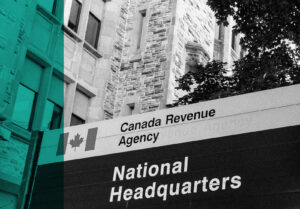
Certain small businesses struggling to make ends meet are asking why they’ve been excluded from government programs.
Two of the most significant programs for businesses are the Canada Emergency Wage Subsidy (CEWS) and the Canada Emergency Business Account (CEBA). One of the requirements for CEWS is that the business had a payroll account with the Canada Revenue Agency on March 15, 2020. One of CEBA’s requirements is that the business had total 2019 payroll between $20,000 and $1,500,000, as reported on a 2019 T4 summary.
Several small businesses don’t qualify for these programs given their remuneration plans.
Consider a typical sole proprietor operating a business with no employees. They’ll receive no support from CEWS and CEBA because they wouldn’t have needed a payroll account, nor would they have a 2019 T4 summary as they typically wouldn’t pay themselves a salary.
Instead, they’re remunerated with the profit from their business after applicable taxes and CPP payments. (Profit is reported as self-employment income on the business owner’s personal tax return.)
Also consider the business owner who is the sole shareholder/director of a corporation operating a business with no employees. When the owner is remunerated with dividends, the corporation pays taxes based on the corporate tax rate, and the dividends are paid with after-tax earnings. The dividends are also taxable to the shareholder personally. However, because of integration, the total tax paid by the corporation and shareholder approximates the taxes under the sole proprietor scenario.
The biggest difference is that no CPP is payable on the dividends. However, the shareholder will also not receive CPP benefits on these earnings in the future when they reach the eligible age, whereas the sole proprietor will.
Like the sole proprietor, the shareholder of a corporation wouldn’t have needed a payroll account and wouldn’t have a 2019 T4 summary. Therefore, they wouldn’t qualify for CEWS or CEBA.
The rules for these support programs are clear. What’s unclear is why so many small businesses are excluded. Compared to a business with employees, the biggest difference for businesses without employees is they generally don’t make employer or employee contributions to EI. Was this a factor in the decision to treat businesses differently, or simply an oversight?
Although many of these business owners may qualify for the Canada Emergency Response Benefit (CERB) of $500 per week, that benefit was meant to replace personal income, not operating cash flow for a business. In contrast, CEBA is for a business’s non-deferrable operating expenses, including rent, utilities, insurance, property tax and regularly scheduled debt service. For many businesses that currently qualify, CEBA has provided the bridge they need to operate until they can start to generate enough cash flow.
For the businesses that don’t qualify, is CERB expected to cover these same operating expenses? Some business owners who qualify for CEBA also qualify for CERB, so it’s clear the government saw the need for two programs to support them. Why are certain sole proprietors and incorporated individuals excluded?
Dan Kelly, president of the Canadian Federation of Independent Business has said that 20% of Canada’s 1.4 million small- and medium-size businesses don’t qualify for CEBA because they either pay employees dividends or employ contractors.
Since the government unveiled its rent relief program for businesses last month, there’s been no mention of additional programs or changes to existing programs to help businesses, despite the government’s awareness that some businesses are falling through the cracks. Further, the speed of legislation seems to have slowed.
Yet, several small businesses remain closed and may never reopen, and others may not have the cash flow to continue operating unless new funding is announced or existing eligibility requirements are broadened.
While it may be too late for some, hopefully the government will assist small businesses that are important to Canada’s economy but shut out from benefits.




